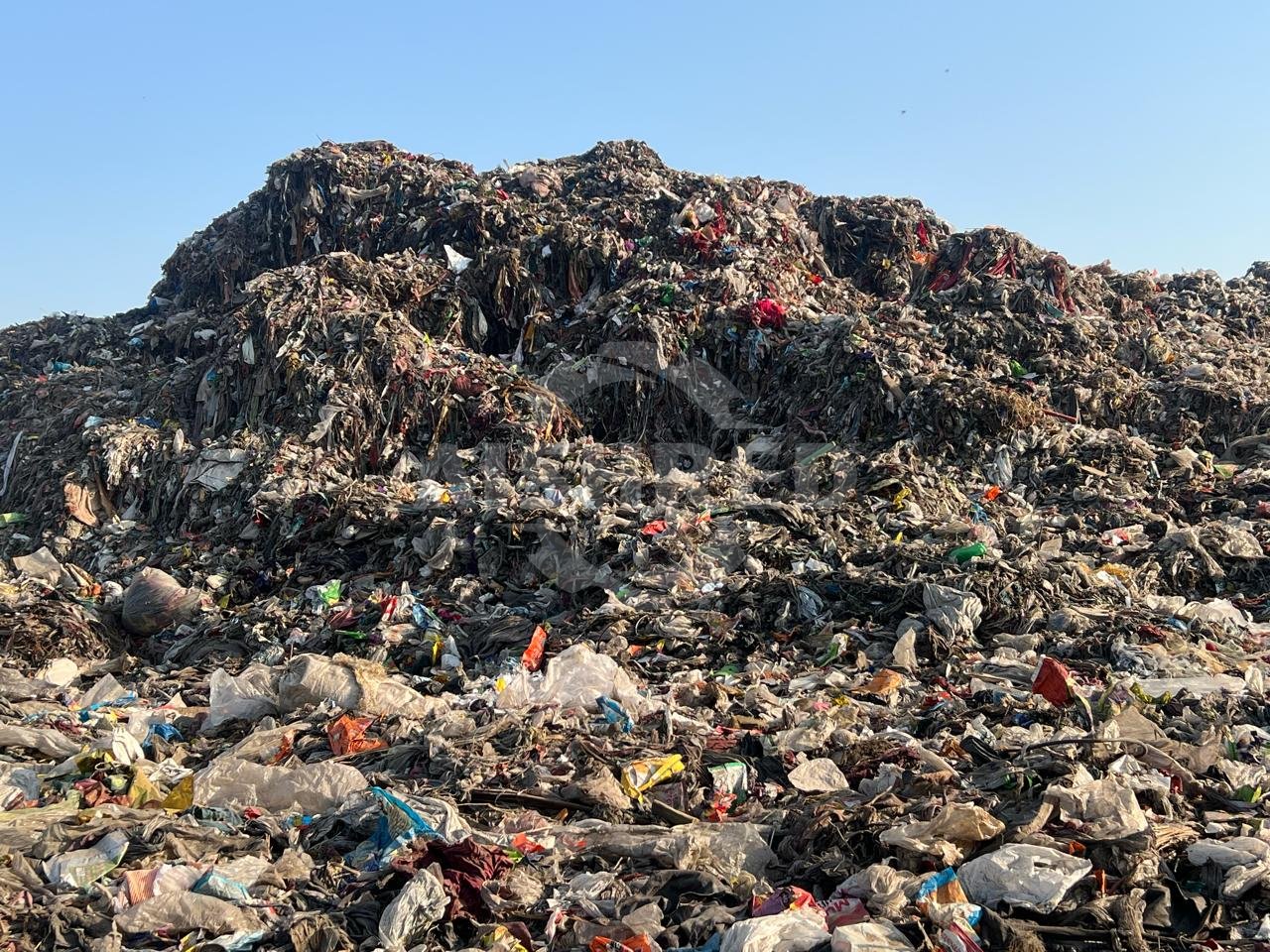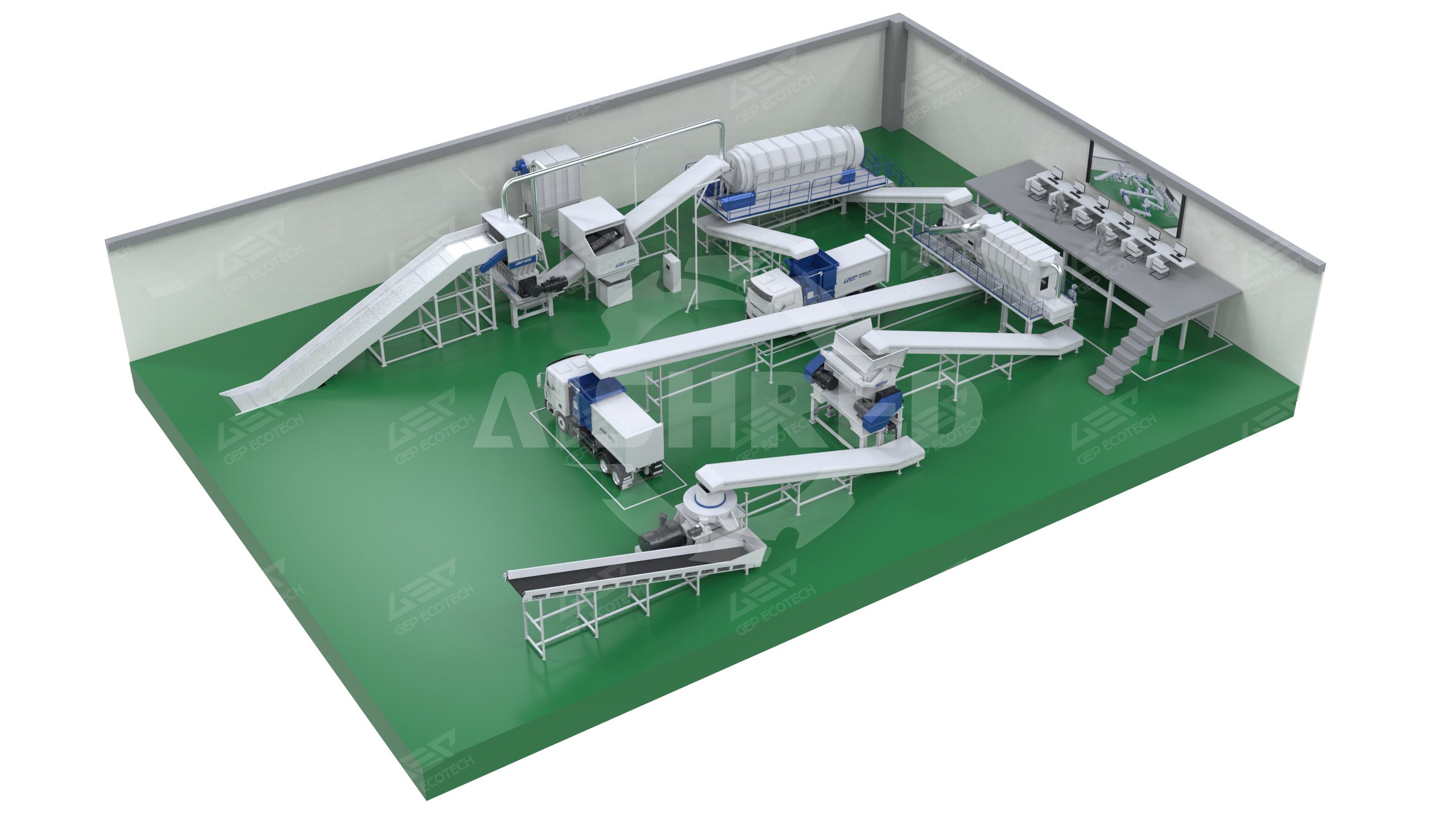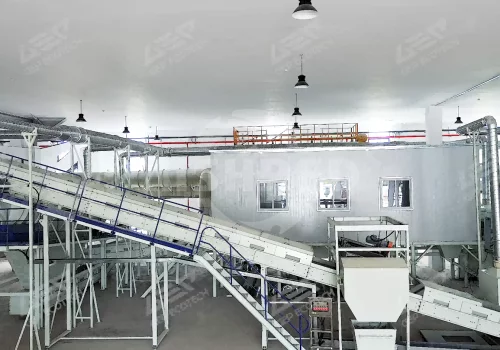Municipal solid waste (MSW) refers to the everyday items discarded by households and businesses, including paper, plastics, metals, glass, food waste, and other organic materials. Efficient MSW recycling is crucial for reducing environmental impact, conserving resources, and meeting regulatory requirements. A well-designed MSW sorting plant is essential for separating valuable recyclables from waste, enabling effective recycling and waste diversion.

Challenges in Sorting MSW
- Contamination: Non-recyclable materials and food waste can contaminate recyclables, lowering quality.
- Material Complexity: Composite materials and multi-layer packaging are hard to separate.
- High Volume: Large quantities of waste need to be processed efficiently.

Key Components of an MSW Sorting Plant
- Bag Opener: Opens waste bags for sorting.
- Conveyor Belts: Transport waste to different sorting stages.
- Pre-shredders: Break down large items for easier sorting.
- Trommel Screen: Separates materials by size.
- Magnetic Separators: Remove ferrous metals.
- Eddy Current Separators: Extract non-ferrous metals.
- Windshifter: Use air to separate light materials from heavier ones.
- Second-stage Shredder: Further shreds pre-processed waste.
- Baler: Compresses waste into compact bales.
Materials Sorted by MSW Systems
- Paper and Cardboard: Recycled into new paper products.
- Plastics: Separated by type for recycling.
- Metals: Ferrous and non-ferrous metals are recovered for reuse.
- Glass: Cleaned and recycled into new glass products.
- Organic Waste: Used for composting or biogas production.
- Textiles: Recycled or repurposed.
An effective MSW sorting plant can efficiently recover valuable materials, reduce landfill use, and promote sustainable waste management. By addressing the challenges of sorting and utilizing advanced technologies, these systems help optimize recycling and improve environmental outcomes.
GEP ECOTECH's MSW sorting plant has helped many customers around the world realize the recycling of municipal solid waste. You are welcome to contact us to learn more.


